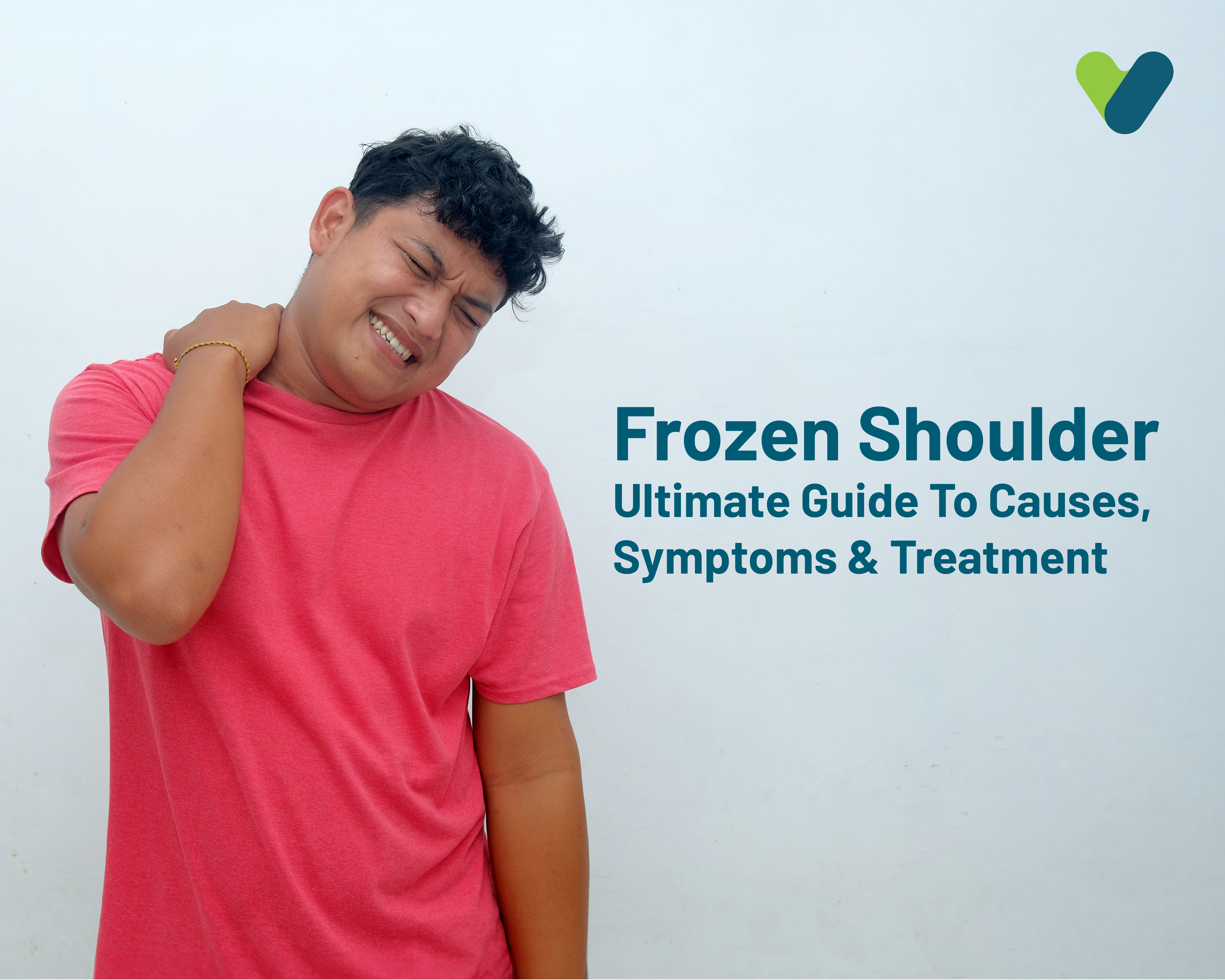Mark, a 45-year-old IT professional could not fathom why his left shoulder had stiffened and caused pain for a few months. Even reaching into a kitchen cabinet to get a cup or putting on a jacket became an ordeal. Not too many people get to know such a condition when it's just in its early stages, known as a condition called frozen shoulder. Frozen shoulder, or adhesive capsulitis, is a condition that affects 2-5% of the general population, with a peak incidence between 40 to 60 years of age[1]. What is odder, however, is that it seems to affect women disproportionately, who are even as much as four times more likely to get the condition than men[2]. The more one understands the condition, the more paramount it becomes to understand and treat this often-overlooked musculoskeletal disorder.
What Is a Frozen Shoulder?
Frozen shoulder is the inflammation of connective tissue involving the shoulder joint. This makes connective tissue thick and tight, brings on pain and stiffness in the shoulder region and limits shoulder movement. It follows a three-stage course:- Freezing stage: Onset of pain and further loss of motion
- Frozen stage: Pain subsides, but stiffness progresses
- Thawing stage: Gradual improvement in the range of motion
Causes of Frozen Shoulder
Frozen shoulder causes are not yet fully understood, but several reasons may play a role in the onset of the condition:- Prolonged immobilization of the shoulder
- Hormonal imbalances
- Autoimmune reactions
- Previous shoulder injuries or surgeries
- 40-60 years of age
- Female gender
- Certain medical conditions including diabetes and thyroid disorders
Frozen Shoulder Symptoms
Frozen shoulder symptoms begin gradually and are generally worse over time. These symptoms include the following:- Dull or aching shoulder pain
- Pain increases with movement
- Increasing stiffness with limited movement in the shoulder
- Inability to perform daily activities which require the use of the shoulder
Frozen Shoulder Diagnosis
- Medical history: Your family doctor will question you about symptoms and past trauma or conditions.
- Physical examination: The doctor will examine the range of motion in the affected shoulder.
- Imaging tests: X-rays or MRI scans are used to rule out other possibilities.
Frozen Shoulder Treatment
Treatments for a frozen shoulder are aimed at relieving the pain and regaining movement. In the treatment of this condition, a patient can undergo some of the following treatments:- Physical therapy: Various muscle-strengthening exercises and ranges of motion for improvement in movement
- Medications: a) Over-the-counter pain medications b) Corticosteroid injections administered to provide relief from the pain
- Home care: a) Applying heat or cold therapy b) Gentle exercises with stretching
- Alternative therapies: - Transcutaneous electrical nerve stimulation (TENS)
- Surgery: Severely impacted cases include:
- Manipulation under anesthesia
- Shoulder arthroscopy
Frozen Shoulder and Diabetes
Such an interesting point about the frozen shoulder is its high association with diabetes. There is a 5-fold increased risk of developing a frozen shoulder in the diabetic population compared to the general population. Also Read : Best Exercises For DiabetesFrozen Shoulder : When to See a Doctor
Consult a doctor if you have:- Shoulder pain lasting several weeks
- Increasing difficulty in moving your shoulder
- Shoulder pain affecting your sleep or activities
- Pain in the shoulder, which occurs suddenly and severely; inability to move the joint
Knowing the signs and risk factors for a frozen shoulder is a good place to start with early intervention.Remember that even the most stubborn frozen shoulder can thaw with patience, proper treatment, and perseverance. References : [1] Zreik NH, et al. (2016). Adhesive capsulitis of the shoulder and diabetes: a meta-analysis of prevalence. Muscles Ligaments Tendons J, 6(1), 26-34. [2] Kingston K, et al. (2018). Shoulder adhesive capsulitis: epidemiology and predictors of surgery. J Shoulder Elbow Surg, 27(8), 1437-1443. [3] Huang YP, et al. (2013). Association of diabetes mellitus with the risk of developing adhesive capsulitis of the shoulder: a longitudinal population-based follow-up study. Arthritis Care Res (Hoboken), 65(7), 1197-1202.


